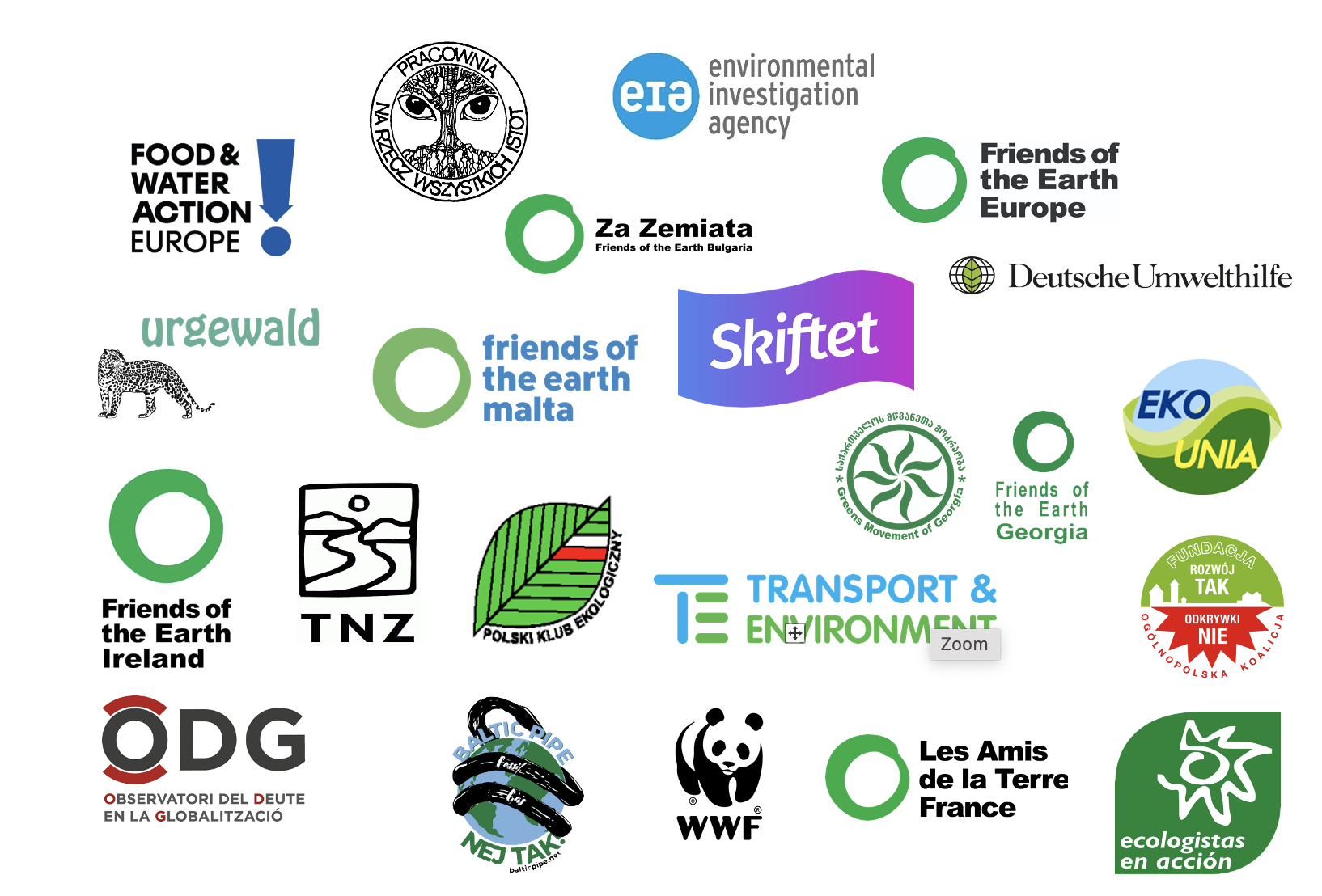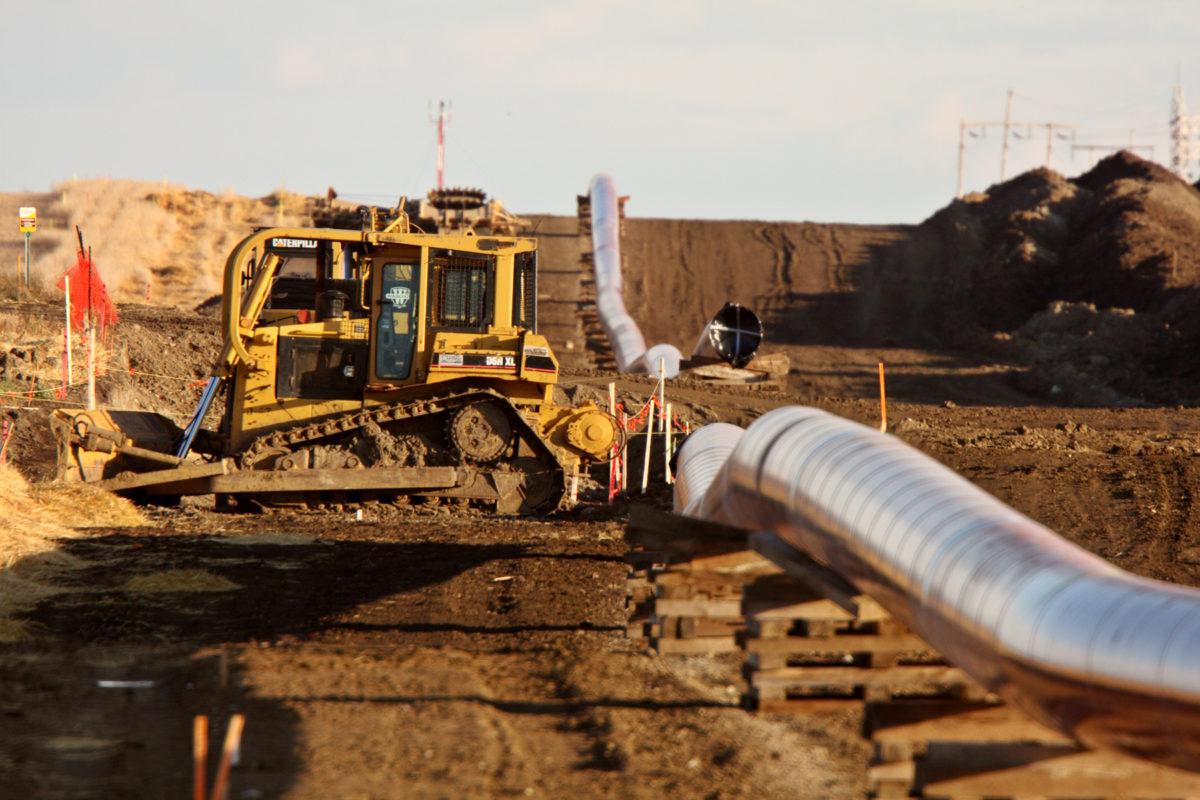Proponents laud green hydrogen as a new zero-carbon energy in the fight against climate change. But green hydrogen is not that simple — and not that green.
The European Union is all abuzz with what’s been hailed as the new frontier of clean energy: hydrogen. Both in Europe and in the U.S., utilities are unveiling plans to develop green hydrogen pipelines attached to regional hydrogen hubs.
The buzz began just before the EU published its Hydrogen Strategy in 2020. Hydrogen has since found its way in virtually all relevant energy policy proposals; by now, most EU member states have announced their intentions to build hydrogen infrastructure.
The hydrogen hype is similarly strong on the other side of the Atlantic. In the U.S., the Biden Administration announced an avalanche of cash to develop hydrogen projects; notably, through the recently passed Inflation Reduction Act.
Proponents have depicted hydrogen as a miracle power source that will help us fight climate change while keeping the lights on. But they’ve neglected to mention the massive obstacles they face, and the enormous costs to us.
Ultimately, a pivot to hydrogen stands to harm vulnerable communities on the frontlines of the climate crisis, and will siphon resources from proven climate technologies.
Green Hydrogen Isn’t So Green
Most companies insist that their hydrogen will be clean, but that’s a lofty promise to make when around 98% of global hydrogen production comes from fossil fuels. In the U.S., currently up to 95% of hydrogen energy is sourced from fracked gas. The other 5% is called “green” hydrogen, because the hydrogen comes from splitting water molecules with electricity from renewable energy.
But even if industry could produce “green” hydrogen at scale, it would still be wasteful and inefficient. Compared to renewable-powered batteries, which are 80% efficient, hydrogen fuel cells are only 30%. That makes hydrogen far more expensive than renewable-based electric power.
Moreover, hydrogen power is a thirsty power source. Throughout its life cycle, each megawatt-hour of “green” hydrogen consumes at least 5,000 liters of water. Compare that to solar, which uses 20 liters per MWh, and wind, which uses just 1 liter per MWh. At a time when climate change already threatens our water supplies and Europe experienced its worst drought in centuries this summer, a huge hydrogen buildout will only make things worse.
We can’t even be sure that “green” hydrogen will actually create no emissions. Hydrogen is a very small molecule, making it more likely than methane, a major greenhouse gas, to leak. And if it does leak, we are in trouble. Hydrogen molecules have a global warming potential 11 times greater than carbon dioxide.
Already, the fossil gas industry in Europe operates leaky infrastructure. Despite claims that it leaks only a small percentage of product, we know that isn’t true. Randomized video imaging samples taken at major EU oil and gas sites show methane streaming right into the sky.
Moreover, authorities and industry have been unwilling to act or have proven to be powerless when faced with mega-leaks, such as the historic leak of the Nord Stream II pipeline in the North Sea in 2022. That leak beat the record of the previous largest at a U.S. fossil gas storage facility that leaked for 100 straight days. There, the utility in charge failed to to both monitor the facility properly and immediately report the leak to officials.
Hydrogen leaks are even less regulated than methane. Though the European Commission proposed a new Methane Regulation in 2021, it is much too weak to really cut emissions and will not help the EU reach its climate goals.
Green Hydrogen Risks Dangers in Our Homes and Backyards
Besides climate risks, hydrogen poses health and safety risks as well. It’s volatile and flammable, even more so than natural gas. Hydrogen pipelines have already caused explosions, posing major dangers to communities near that infrastructure. Moreover, hydrogen is currently stored as ammonia, a hazardous chemical that can even be deadly in high concentrations.
These health risks go beyond pipelines and facilities and into homes: Utilities have proposed blending hydrogen with methane in power plants and utility lines used to heat homes.
Not only is this wildly inefficient compared to electric heating, hydrogen blending can cause nitrogen oxide pollution six times greater than burning fracked gas. Such pollution is an ingredient for particulate matter and ozone, which causes respiratory illnesses that already plague frontline communities.
Hydrogen build-outs threaten to entrench already existing injustices. Rather than bringing relief to communities that have been sacrifice zones for decades of industrial activity, hydrogen stands to keep them in these untenable situations.
Dirty Energy Companies Hide Behind Green Hydrogen
It’s no coincidence that some of the dirtiest polluters are heavily investing in green hydrogen: Promoting this fuel is nothing more than greenwashing the expansion of pipelines or power plants.
These same dirty energy utilities have hidden the dangers of climate change for decades. The fossil fuel industry as a whole spent decades delaying, blocking, and distracting from ambitious climate policy. And they are widely stalling on their climate promises: all talk, no walk.
Companies like Total, Shell, Engie, or Enagás using the still “green” image of hydrogen as a fig leaf for their dirty activities. They are still making billions selling climate wrecking fossil fuels, while quietly advocating against real clean solutions. If allowed, they’ll gobble up our tax money through hydrogen subsidies and raise rates to help cover the expensive projects, too.
Green Hydrogen: Coming to a City Near You
The European Clean Hydrogen Alliance (ECHA), launched by the EU Commission, is full of representatives of the fossil fuel industry with a small number of civil society actors. ECHA developed a hydrogen “project pipeline” with over 1,500 hydrogen projects across Europe, aiming to facilitate financing of the plans.
But a closer look reveals that some projects proposed in this pipeline are not hydrogen projects at all, but rather purely fossil gas projects (e.g., the proposals by GAZSYSTEM).
However, in September, EU Commission President von der Leyen announced a “Hydrogen Bank” that would provide €3bn of tax money to boost the European hydrogen economy. This is badnews for the planet, but good news for polluters: As one U.S. Food & Water Watch organizer put it, “Hydrogen is being used by fossil fuel interests to maintain their dangerous pipeline and energy infrastructure.”
We can’t let hydrogen continue to grow. Instead, we should be investing in community-driven solutions and shutting down this dirty infrastructure in a just transition to 100% clean energy.
We Know How To Fight Climate Change. We Don’t Need “Green” Hydrogen to Do It
Hydrogen may make sense for a few niche uses, but using it for power is a non-starter. We are facing a massive buildout that aims to make hydrogen a major part of the EU energy system. That buildout means sprawling new facilities and pipelines — and more community sacrifice zones.
These projects are multi-billion euro distractions from the clean energy deployment we’ve been calling on for decades. We know wind, solar and geothermal electrification, demand response, and energy efficiency with weatherization will fight climate change. Not only will they do so more cheaply, more efficiently, and with far less public health risks — they will create thousands of new clean energy and climate jobs.
The truth is, oil and gas industries want to make billions pretending to be part of the solution to the climate crisis. We can’t let this happen. We must protect energy and climate decision-making from fossil fuel interests. We must fight for a 100% renewable energy transition, where no one gets left behind.



 Food & Water Action Europe, together with an alliance of European-wide civil society organisations, has sent an open letter to the Members of the European Parliament (MEPs) urging them to adopt more ambitious measures ahead of the deadline for tabling amendments to the draft report on the Methane Regulation.
Food & Water Action Europe, together with an alliance of European-wide civil society organisations, has sent an open letter to the Members of the European Parliament (MEPs) urging them to adopt more ambitious measures ahead of the deadline for tabling amendments to the draft report on the Methane Regulation.
 On June 30, the US Supreme Court (SCOTUS) made another tragic decision. Just days after overturning the constitutional right to an abortion, the Court curtailed the Environmental Protection Agency (EPA)’s capacity to regulate climate-changing greenhouse gases for existing fossil fuels power plants under the Clean Air Act.
On June 30, the US Supreme Court (SCOTUS) made another tragic decision. Just days after overturning the constitutional right to an abortion, the Court curtailed the Environmental Protection Agency (EPA)’s capacity to regulate climate-changing greenhouse gases for existing fossil fuels power plants under the Clean Air Act.